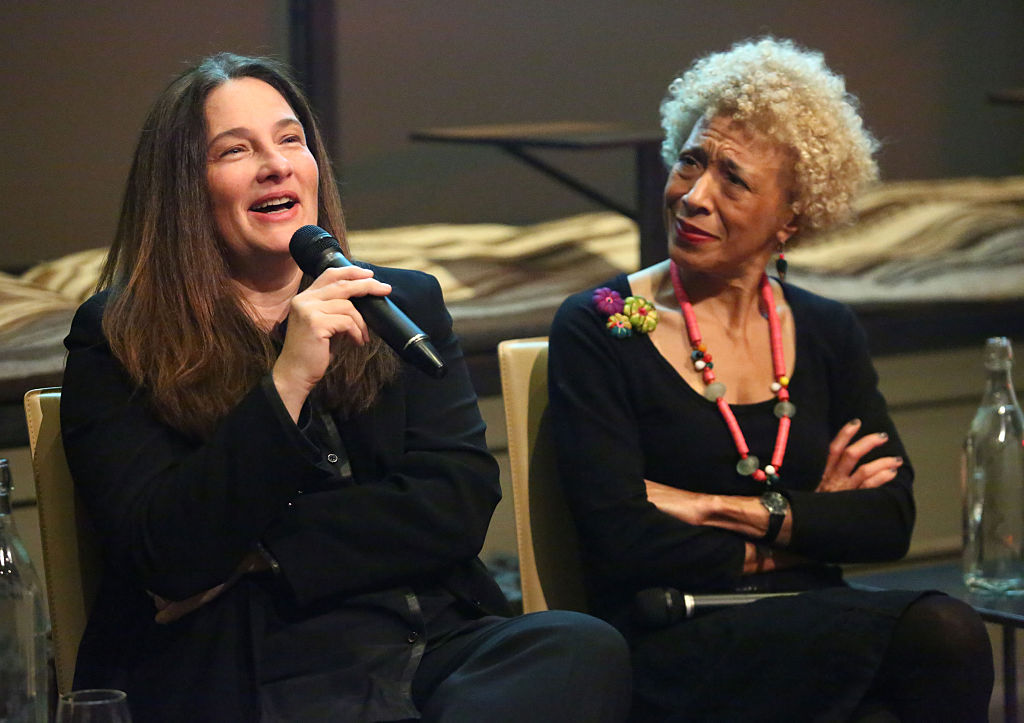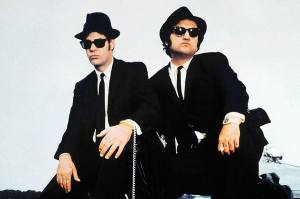When reading A.M. Homes’s fiction, you’re never quite sure what to expect. In 1996, she made waves with the publication of her “vile and perverted” novel The End of Alice: a none-too-edifying tale narrated from the perspective of an imprisoned pedophile and child-killer, who spends the book in correspondence with a nineteen-year-old girl about how to seduce a twelve-year-old boy. In a rare instance in which the UK was more prudish than the United States, a large chain of British booksellers refused to stock the work.
More recently, her 2012 novel May We Be Forgiven — for which she won the 2013 Baileys Women’s Prize for Fiction — features a fatal car accident, a psychiatric hospital, an extramarital affair and a homicide. And that’s all within the first chapter.
Many of her other works — such as Music for Torching (1999) and This Book Will Save Your Life (2006) — take comfortable upper-class milieux and render them dark, gothic and twistedly funny. Music for Torching opens with a husband-and-wife duo arguing over the aftermath of a dinner party. “Gristle,” “potatoes swimming in butter” and salad “drenched in dressing” become, to the husband’s eyes, his wife’s means of “poisoning [him].” Homes is no easy bedtime read.
But the opening of her latest (and not entirely successful) novel, The Unfolding — published a decade after her last long work of fiction — is something altogether different. In the place of the author’s typical suburban Westchester setting, the book’s first chapters crisscross from Arizona to Wyoming to Washington, DC. And, instead of some unforeseeable fiction, the main action is — at least to begin with — something anyone who has been alive for the past two decades can remember.
It is November 5, 2008, and for the die-hard Republicans at the center of Homes’s novel, the unthinkable has occurred: “A Black man just got elected President of the United States.” In the place of the joy experienced by much of the country — “people are coming out into the streets; they’re hugging one another, dancing, setting off firecrackers” — the family Homes describes is undone. “The news… hit the room like death.”
Homes’s subjects are not average Americans. The father — “Big Guy” is the only name he is given in the novel — is a wealthy Republican donor; the source of his riches is deliberately left unclear. His wife, Charlotte, is an alcoholic anorexic, whose preparation for election night is to eat a bread roll (“she doesn’t usually eat carbohydrates,” but sometimes they are “required”). Their daughter, Meghan, is at an elite girls’ boarding school in Virginia, where her greatest friend is her horse, Ranger.
If you think this sounds like a thinly drawn parody of a wealthy, repressed family, then you would be right. But Homes is too clever for such lazy writing. She sets up this predictable story of wealth, privilege and accompanying ennui only to complicate it. Over the course of 400 pages, the truth unfolds: dead children, alcoholism, extramarital affairs, a lot of drug-taking, lesbian lovers, gay godfathers and surprise conversations with Condoleezza Rice.
But it is not the family saga that most interests Homes. The Unfolding is set in the three months immediately after John McCain’s loss in November 2008, and finishes just at the moment that Barack “he used his middle name — Hussein. Holy fuck” Obama takes the oath in January 2009.
Over the course of these three months the “Big Guy” develops a plan to take America back to the country of his forefathers, so horrified is he by the fact that “on January twentieth, a Black man will be setting up shop in the White House.” He grandiloquently declares that “we are not doing this for ourselves… We’re doing it for our history, to protect and preserve.” This “protecting and preserving” involves a motley crew of a doctor who is not altogether concerned with saving life, a political historian, a shady general and some even shadier moneymen.
Their plan boils down to a “seamless transition unfolding in the corridors of power, a slow roll to the right that no one sees coming,” brought about by the “withering of local law enforcement, economic setbacks and failing infrastructure.” For these men, this is the “new American dream,” which will take “at least fifteen years” to be realized.
By the time of The Unfolding’s publication (Fall 2022), 2008 will be nearly fifteen years ago. If that wasn’t too on the nose, Homes even includes references to global pandemics. “We’ve got freezers full of security-sensitive microbes… the question is — what will be weaponized?” asks the rather disconcerting doctor.
The Unfolding is, patently, Homes’s attempt at the “Great American Novel”: it tears between family life, political concerns, contemporary references — all with the feeling that she is trying to say something meaningful. She doesn’t. Instead of a depiction of contemporary America, we get a thinly fictionalized version of a conspiracy the- ory. Even if this could be forgiven, and the plot taken at face value — Homes’s fiction has, after all, always reveled in absurd, high-stakes situations — The Unfolding lacks the pace, comedy and verve of her other novels.
As readers, we are left stranded somewhere between serious state of the nation fiction and the darker sides of a particularly extreme Reddit forum. It isn’t a good place to be.
This article was originally published in The Spectator’s September 2022 World edition.


















